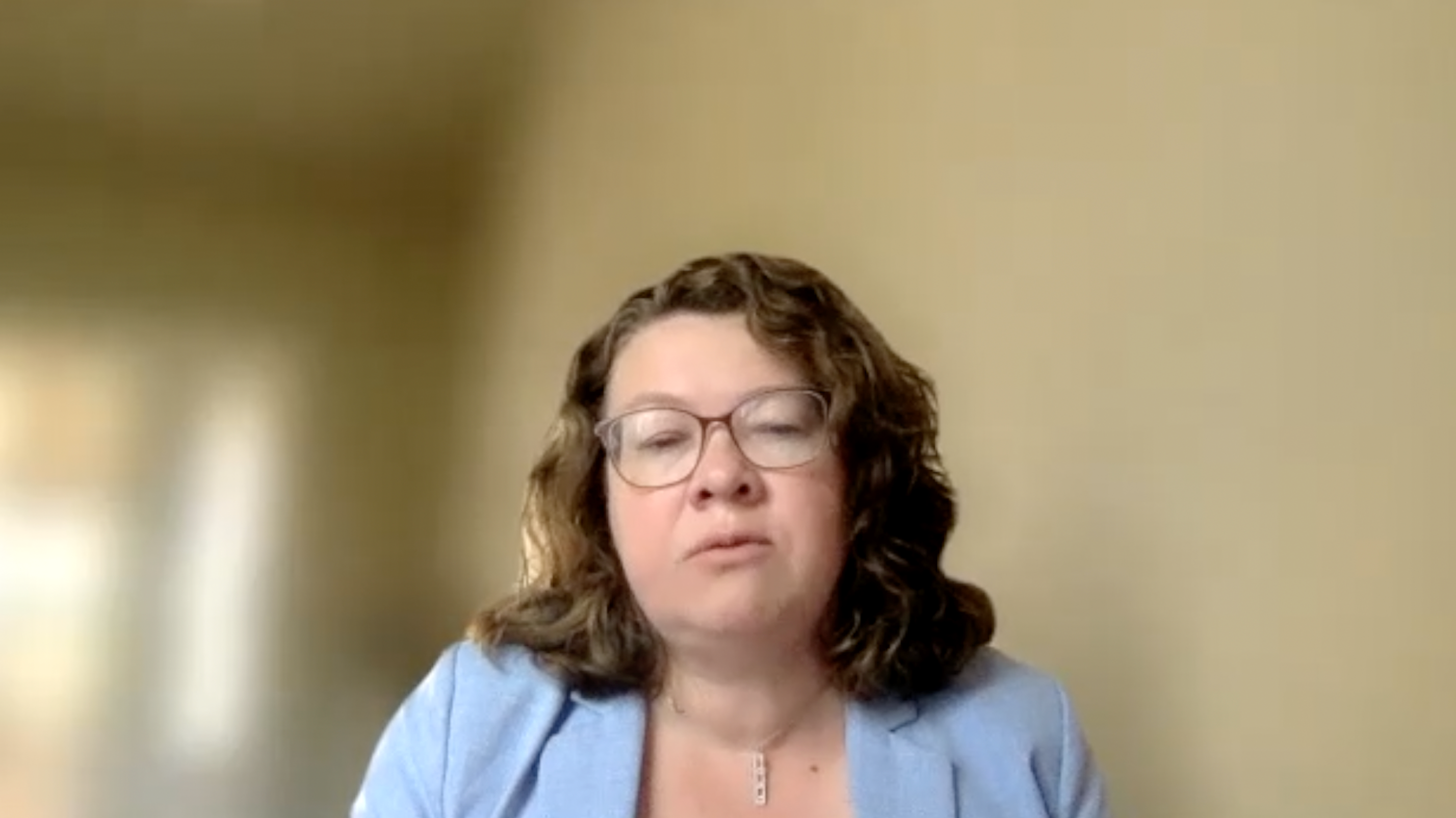
At the 2021 World Conference on Lung Cancer, CancerNetwork® spoke with Lyudmilia Bazhenova, MD, of the University of California, San Diego, about outcomes with immunotherapy agents in patients with wild-type and EGFR exon 20 insertion–positive non–small cell lung cancer (NSCLC). Bazhenova elaborated on key findings from the trial and how the data indicate that the use of EGFR Tyrosine kinase inhibitors (TKIs) are better suited for patients with wild-type disease instead of those with EGFR exon 20 insertions.
Transcript:
The primary end point of the study was real-world time to next treatment, and then the secondary end point of the study was real-world overall survival [OS]. We started with approximately 67,000 patients with advanced NSCLC , which were in the database. [There were] enough [patients] to exclude [those] without the mutations of interest or result tissue that would tell us what the mutation of interest is. [We excluded] patients we didn’t have enough data [for]. We ended up with about 16,000 patients with wild-type NSCLC and 192 patients with exon 20 insertion.
We did 2 analyses: 1 was to look at the treatment patterns to understand what those patients are being treated with, and then the second analysis looked at the efficacy in first-line checkpoint inhibition, comparing between patients with wild-type NSCLC and exon 20 insertion. What we found is that almost 60% of the patients with exon 20 insertions will get immune checkpoint inhibitors as a first-line [therapy] compared with approximately 65% of the patients with wild-type non-small cell lung cancer. We also saw that despite the fact that we know that EGFR TKIs are really not that effective in patients with exon 20 insertions, almost 20% of the patients received a EGFR TKI as a first-line [therapy]. About 15% of the patients will receive EGFR TKI [as a] second-line [therapy], and approximately the same amount of patients, about 15%, will receive a EGFR TKIs as a third-line [therapy].
[Additionally], I want to highlight the fact that patients were very similar in demographics between wild-type NSC:C, and EGFR exon 20 insertion with the exception of fewer smokers in patients with EGFR exon 20 insertion, which is expected because that mutation generally happens in a non-smoking population. Then when we looked at what type of immune checkpoint inhibition patients received, [it], again, [was] not a surprise that the majority of the patients received nivolumab [Opdivo] and pembrolizumab [Keytruda]; that accounted for over 90% of the patients.
The primary end point, as I mentioned before, was real-world time to next treatment. We found that [for] patients with EGFR exon 20 insertions, the median real-world time to next treatment was 3.7 months with immune checkpoint inhibition compared with wild-type [disease’s median time to treatment] of 5.8 months. Therefore, the hazard ratio was 1.58, which was statistically significant. [This] basically means that patients with exon 20 insertions, who received immunotherapy are 58% or more likely to have a shorter time to next therapy. When we looked at OS, the difference was not statistically significant. The median real world OS was about 10.9 months in the exon 20 cohort, and 11.3 months the wild-type cohort, [with] a hazard ratio of 1.21 that was not statistically significant.
What we concluded based on this real-world evidence study is that immune checkpoint therapy is less effective for patients with EGFR exon 20 insertions compared with the wild-type of NSC:C. We did not see any difference in survival. We also determined that despite the fact that EGFR TKIs are not believed to be as effective in exon 20 insertions, in the real world, those drugs are still being given to our patients. We need to do more education to explain why traditional EGFR TKIs should not be given to those patients.
Reference
Bazhenova L, Girard N, Minchom A, et al. Comparative clinical outcomes between EGFR exon20ins and wildtype NSCLC treated with immune checkpoint inhibitors. Presented at: 2021 World Conference on Lung Cancer; September 8-14, 2021; Virtual. Abstract P08.04
"type" - Google News
October 25, 2021 at 01:05AM
https://ift.tt/30Ng0OU
Lyudmila Bazhenova, MD, Discusses the Outcomes With Immunotherapy in Wild-Type vs EGFR Exon 20 NSCLC - Cancer Network
"type" - Google News
https://ift.tt/2WhN8Zg
https://ift.tt/2YrjQdq
Bagikan Berita Ini














0 Response to "Lyudmila Bazhenova, MD, Discusses the Outcomes With Immunotherapy in Wild-Type vs EGFR Exon 20 NSCLC - Cancer Network"
Post a Comment